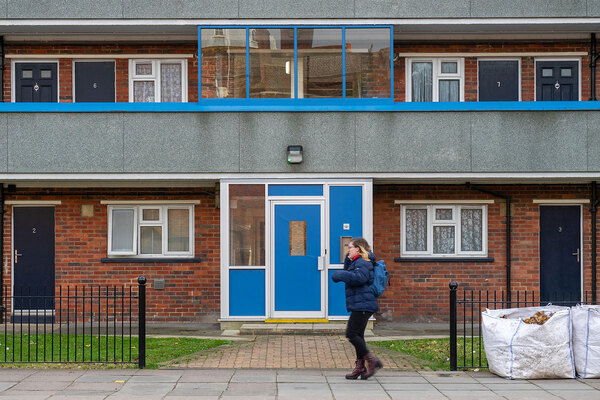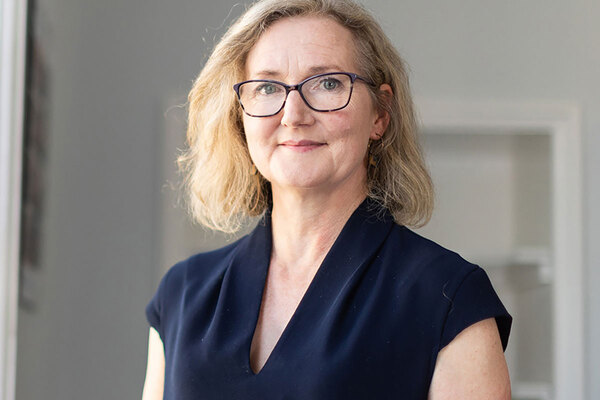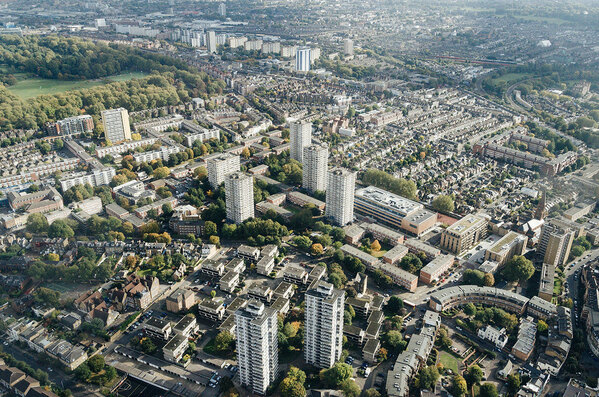You are viewing 1 of your 1 free articles
A century on from the Addison Act, local authorities still hold the key to accessible housing for all
We still have far to go on providing adequate solutions and housing for disabled people, writes Victor Chamberlain, a Liberal Democrat councillor in Southwark
“An adequate solution of the housing question is the foundation of all social progress.”
You could be forgiven for mistaking this as a quote from the King’s Speech just three months ago. In fact, it’s from the 1919 King’s Speech.
Last week, I gave evidence on behalf of the Local Government Association (LGA) to a House of Commons Committee on how far we still have to go to provide adequate solutions and housing for disabled people.
It’s over a century since the ground-breaking Addison Act of 1919, passed under Liberal prime minister David Lloyd George, laid the foundation for social housing in the UK.
Despite significant progress since then, it’s disheartening that we still grapple with the fundamental challenges of providing quality and suitable housing for everyone.
This is particularly true for disabled people, who lack a range of suitable housing options, especially adequate numbers of accessible and adaptable homes.
Accessible housing is not just a matter of convenience; it is a fundamental human right that directly impacts individuals’ safety, independence and quality of life. Accessibility features and home adaptations also prevent avoidable hospital admissions and care-home placements. Every £1 invested in housing adaptations is worth more than £2 in care savings and quality of life gains.
It’s a win-win scenario that cannot be ignored, particularly at a time when social care budgets face unprecedented strain.
The Disabled Facilities Grant, intended to fund housing adaptations, is woefully insufficient to meet demand. The £30,000 cap on expenditure per home is outdated and inadequate, leaving many unable to afford the necessary modifications. Consequently, local councils are forced to cover the shortfall from overstretched social care budgets, exacerbating financial strain and limiting resources for other essential services.
“We need to empower local authorities to regain their historic role as builders of affordable homes and deliver the 100,000 social homes annually that are desperately required”
We need Whitehall investment in home adaptations, along with the widespread introduction of accessibility standards for new homes in the National Planning Policy Framework (NPPF) and building regulations, to ensure all individuals have access to safe and suitable housing options.
As we focus on our housing demands for the next general election, one glaring truth from the last century becomes obvious: local authorities are best placed to meet disabled people’s housing needs.
While the private rental sector is an integral part of our housing market, these homes are often unaffordable and inaccessible for many disabled people. The Local Housing Allowance does not meet market rents in most areas, and disabled people face unacceptable discrimination when seeking to rent privately – 45% of landlords have reported they were unwilling to rent to people requiring adaptations.
The Renters (Reform) Bill and government white papers will help deal with some of these issues, but in the meantime, social homes are often the only option for many people. Social rent homes are genuinely affordable, provide security of tenure and can be adapted to meet need. Sadly, we simply don’t have enough social homes.
At the select committee, I raised the case of Michelle, a disabled resident in Southwark, who has been waiting for 22 years for a safe home to meet her needs. Scandalously, Michelle’s case is all too common.
The Addison Act marked a significant shift in housing policy by recognising the government’s responsibility to ensure adequate and affordable housing for all citizens. It empowered councils to take the lead in addressing housing shortages and improving living conditions, laying the groundwork for a more inclusive society.
Since the 1980s, however, local government has stopped building houses in sufficient numbers to handle the needs of a diverse society. We face many housing crises, but the lack of accessible social housing is directly attributable to the imbalance and challenges disabled people face.
“Accessible housing is not just a matter of convenience; it is a fundamental human right that directly impacts individuals’ safety, independence and quality of life”
We need to empower local authorities to regain their historic role as builders of affordable homes and deliver the 100,000 social homes annually that are desperately required.
The LGA is calling on the government to implement a comprehensive six-point plan to provide funding, skills, powers and confidence to enable this. Councils have intimate knowledge of communities and their diverse needs, and are uniquely positioned to address the specific challenges faced by residents with disabilities.
We need to learn the lessons of history and recognise that councils are not just well-placed, but essential actors in delivering accessible housing for all. Empowering local authorities with the necessary resources, funding and autonomy is not just a matter of policy; it’s a moral imperative.
As we face the first election since the centenary of the Addison Act’s implementation, we must recommit to the principles of social justice and inclusivity that underpinned it.
We cannot be an inclusive society if we continue to overlook the housing needs of people with disabilities.
It is time for the government, local authorities, developers and society as a whole to come together to prioritise accessibility, and ensure all individuals have access to housing that meets their needs and enables them to live with dignity and independence.
Sign up for our Council Focus newsletter
Already have an account? Click here to manage your newsletters













